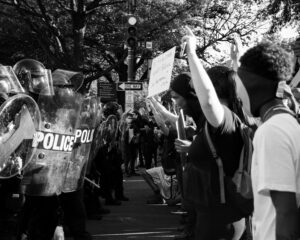We live in an information society. Information is ubiquitous and we have access to every kind of facts, data and figures at our fingertips. We´re overloaded with data from advertising to the news to social media feeds and it´s giving us a hard time to make sense of information and the world.
“Without facts you can´t have truth. Without truth, you can´t have trust. Without all three, we have no shared reality, and democracy as we know it – and all meaningful endeavors – are dead”.
Maria Ressa, ´How to stand up to a dictator – The fight for our future`.
THE TRUTH MATTERS
In the age of an information civilisation, it´s becoming increasingly difficult to truly understand what is true and what isn’t true. In a post-truth world, it´s a matter of urgency that we acknowledge the facts. Without no facts, there can be no truth and we can´t make sense of information.
MISINFORMATION
History has always seen attempts to fabricate lies or cover up the full truth. But with the rise of powerful social media platforms, the manipulation of facts, media trends and stories can easily empower people with conflicting ideas, spreading like wildfire, and in the process polarising societies and weakening stable democracies.
FAKE NEWS
Before 2016, ´fake news` wasn’t even a term in our national vocabulary and neither was ‘alternative facts’. Yet this gathered momentum in the aftermath of the US elections and it´s now a circulating phenomenon sowing seeds of discord and mistrust in society.
FACT OR FICTION
It depends on us, the people, society, to hold together the very nature of our social fabric together. Familiarity breeds contempt, animosity grows towards one other. We need to be aware of our sources of information, check our facts, understand what we read and question the validity of our sources.
FOR YOUR INFORMATION

Misinformation on the
platform
How Facebook encourages
polarisation on its platform.